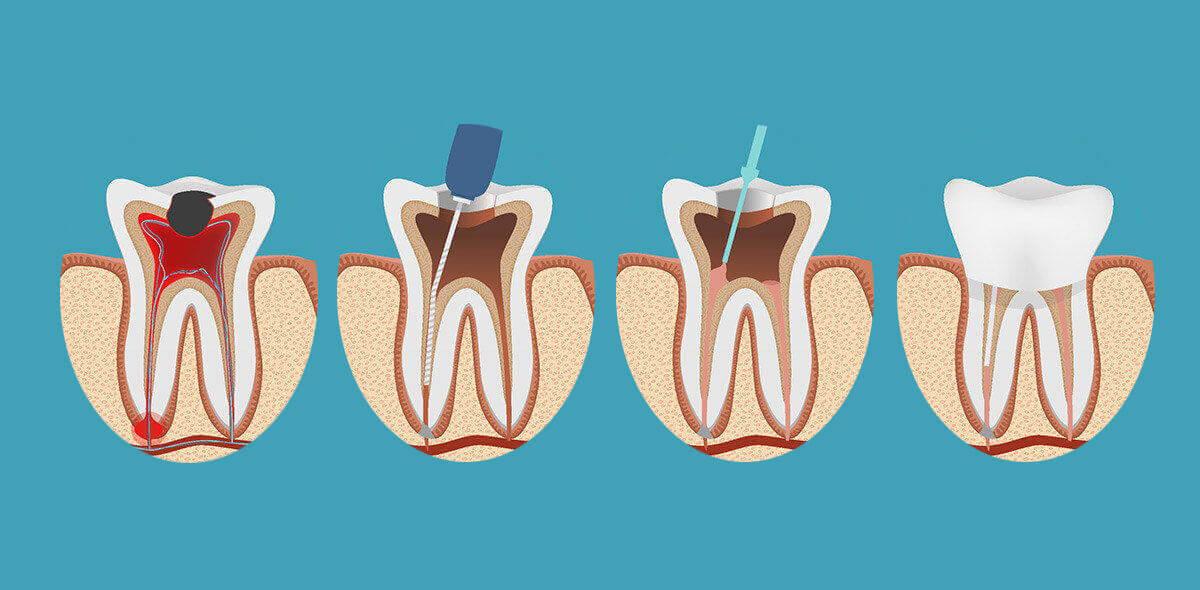Root canal treatment, also known as endodontic therapy, is a procedure designed to save a tooth that has been severely damaged or infected. Despite its effectiveness and importance in dental care, several myths and misconceptions surround this procedure. Understanding the truth behind these myths can help alleviate anxiety and encourage timely treatment. Here’s a closer look at some common myths and misconceptions about root canal treatment.

1. Myth: Root Canals Are Extremely Painful
The Truth
One of the most persistent myths about root canal treatment is that it is excruciatingly painful. In fact, the procedure is often no more painful than a routine filling.
Why It’s a Myth
- Local Anesthesia: Root canal treatments are performed under local anesthesia, which numbs the affected area and prevents pain during the procedure.
- Modern Techniques: Advances in dental technology and techniques have significantly improved the comfort of the procedure. Most patients report feeling minimal discomfort during and after the treatment.
What You Can Do
- Discuss Concerns: If you have concerns about pain, discuss them with your dentist. They can explain the pain management strategies used during the procedure.
- Post-Treatment Care: Mild discomfort or soreness after the procedure is normal and can be managed with over-the-counter pain relievers.
2. Myth: Root Canals Cause Systemic Health Issues
The Truth
Another common myth is that root canals are linked to systemic health problems, such as heart disease or cancer. This myth originated from outdated theories and has been debunked by modern research.
Why It’s a Myth
- Scientific Evidence: Numerous studies and reviews have found no credible evidence linking root canal treatment to systemic diseases. Root canals are safe and effective when performed by a qualified professional.
- Infection Control: The procedure involves removing infected tissue and sealing the tooth to prevent further infection, a crucial step in maintaining overall health.
What You Can Do
- Trust Your Dentist: Trust the expertise of your dental professional and the evidence-based practices they follow.
- Seek Information: If you have concerns about the safety of root canals, ask your dentist for information and studies that support the procedure’s safety.
3. Myth: Root Canals Are Only a Temporary Solution
The Truth
Some people believe root canal treatment is a temporary fix and the tooth will eventually fail. A well-performed root canal can save a tooth for many years, often for the rest of the patient’s life.
Why It’s a Myth
- Success Rate: Root canal treatments have a high success rate, with many teeth remaining functional for decades when properly restored with a crown or filling.
- Longevity: After a root canal, a tooth is typically restored with a crown to protect and strengthen it, enhancing its durability.
What You Can Do
- Follow-Up Care: To maintain the health of the treated tooth, ensure you follow through with necessary restorations and attend regular dental check-ups.
- Proper Hygiene: Maintain good oral hygiene practices to support the longevity of the treated tooth.
4. Myth: Root Canals Will Make Your Tooth Weak and Brittle
The Truth
Another misconception is that a tooth that has undergone a root canal will become weak and more prone to fractures. While the procedure does remove the pulp, it does not necessarily weaken the tooth.
Why It’s a Myth
- Restorative Techniques: After a root canal, the tooth is typically restored with a crown or other dental work that helps maintain its strength and function.
- Tooth Preservation: The goal of the root canal is to preserve the tooth by removing infection and sealing it, which prevents further damage.
What You Can Do
- Restoration: Ensure the tooth is properly restored with a crown or other appropriate dental work as your dentist recommends.
- Avoid Hard Foods: Avoid chewing on very hard foods immediately after the treatment to avoid potential damage.
5. Myth: Root Canals Are Unnecessary if the Tooth Doesn’t Hurt
The Truth
Some people believe that a root canal is unnecessary if a tooth isn’t causing pain. However, the absence of pain does not always indicate the tooth’s health.
Why It’s a Myth
- Silent Infection: An infection or damage to the tooth’s pulp can exist without causing noticeable pain. Early intervention is crucial to prevent the disease from worsening.
- Preventive Care: Based on X-rays or symptoms not yet causing pain, a root canal may be recommended to prevent future complications and preserve the tooth.
What You Can Do
- Regular Check-Ups: Attend regular dental check-ups and follow your dentist’s recommendations, even if you are not experiencing pain.
- Seek Treatment Early: If your dentist suggests a root canal, consider it a preventive measure to avoid more serious issues in the future.
Conclusion
Root canal treatment is vital for saving damaged or infected teeth and maintaining overall oral health. Addressing common myths and misconceptions can help alleviate concerns and encourage timely treatment. If you have questions or worries about root canal treatment, don’t hesitate to discuss them with your dentist. They can provide accurate information and guide you through the process, ensuring you make informed decisions about your dental care.